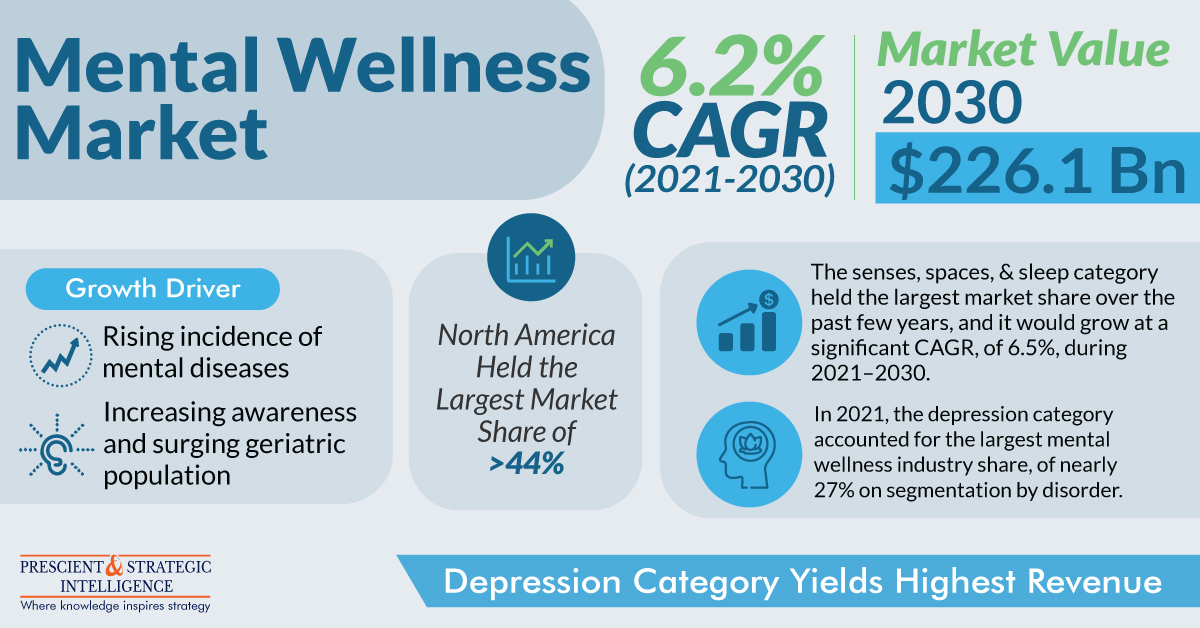The mental wellness market has garnered $131.6 billion revenue, and it is projected to generate $226.1 billion in 2030, advancing at a rate of 6.2% from 2021 to 2030.

Brain-boosting nutraceuticals & botanicals are significant revenue contributors to the mental wellness industry. Their contribution is projected to reach $59.2 billion in 2030, rising at a rate of 6%.The mental wellness market has garnered $131.6 billion revenue, and it is projected to generate $226.1 billion in 2030, advancing at a rate of 6.2% from 2021 to 2030. Brain-boosting nutraceuticals & botanicals are significant revenue contributors to the mental wellness industry. Their contribution is projected to reach $59.2 billion in 2030, rising at a rate of 6%.
Browse Full Report Mental Wellness Market Key Market Dynamics
Natural herbals, botanicals, supplements, functional foods, and drinks developed with the specific objective of improving mental health and wellness are emerging in the industry. They come with claims to enhance the sleep cycle, brain health, memory, as well as vitality.Product Demand Driven by Rising Awareness of Stress Management
• Stress impacts the emotional balance as well as the physical health of a person.
• It also affects their capacity to perform successfully, think with clarity, and enjoy life. A major number of people experience stress, including occupational stress.
• Excessive stress may impact the productivity, efficiency, and physical as well as emotional wellbeing of a worker. Therefore, stress management is crucial in workplaces, and the growing awareness of this fact has become a key market driver.
Growing Prevalence of Depression also Propelling Sales Revenue
Under the disorder segment, depression captures the largest share, of around 27%. It is credited to the increasing cases of depression, suicide, and anxiety, which has resulted in the growing concerns over mental health worldwide.
Moreover, depression is a widespread mental disorder, with 5% of the adult population suffering from it globally. It is identified as persistent sadness and lost interest in pleasure and rewarding activities. It can impact the appetite and sleep, thereby giving rise to the common symptoms of tiredness and poor concentration.